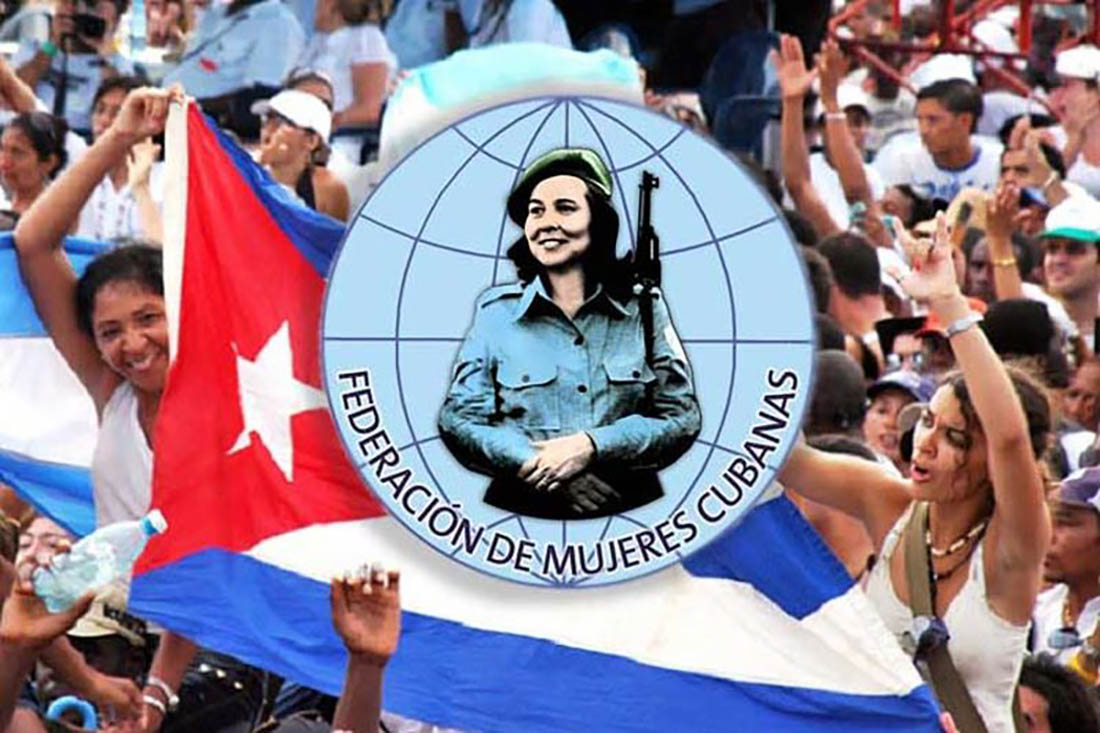In the first months of 1959, the unitary process of the Cuban female sector was carried out; since several such organizations existed at the time of the triumph; while others had arisen in the heat of the process. In a broad national assembly, in which revolutionary women from all over the country participated, the Federation of Cuban Women (FMC, by its acronym in Spanish) was created on August 23rd, 1960. Vilma Espín Guillois was elected as its director.
Its constitution also turned out to be an important step on the road to popular unity. In addition, its governing documents contain explicit ideas referring to its role as a means of the political-ideological activity of the project of the Revolution.
Organization work
Its work is directed towards the advancement, incorporation, equity of women at all levels and areas of society, and the elimination of patriarchal hegemony. For this, it has developed policies and programs, put into practice, fundamentally within the families and neighbors. As well as tasks related to the formation of ethical and patriotic values in children and young people, combating social indiscipline and supporting the elderly.
In this sense, it is necessary to highlight its decisive influence on Cuban legislation; Well, in family matters, the federation has participated in the drafting commission of the code, in the development and compilation of information in the consultation made to the population.
Conferences
The national congresses that it celebrates reaffirm its objectives and functions. For example, in the IV Congress, held in 1987, the theme of the school-family relationship was reinforced; due to the educational role that both socializing agents play in the development of the personality of the members. On the other hand, in the VI Congress, held in 1995, as Yanesy de la Caridad rightly states, the need to constantly update orientation programs is highlighted, depending on whether they respond to the growing and different needs and interests of women and families in the community areas of each house.
A decisive step
The researcher also adds that the founding of the Center for Women’s Studies in 1997 evidences another significant moment in the development of the scientific work of the organization. The decision to order and make official studies on women, which had been developing for a long time, allowed this activity to be elevated to the category of Study Center under the principle of the close link between scientific activity and the work of the organization in all its aspects.
Present-day
The action of the FMC in the community has been essential; because it has become a medium, whose actions have focused on the re/de/construction of gender relations, supported by the educational, guidance, preventive and social care work carried out.
Conclusions
The Cuban context in which this organization was born has changed, therefore the challenges that loom before it are much greater. Now, the reflections towards the emancipation of women must be accompanied by a look at the problems that not only women face, but also men, as well as other groups that are socially disadvantaged.
Bibliography
Serrano Lorenzo, Yanesy de la Caridad. “La Federación de Mujeres Cubanas y su labor con las familias”. Revista Trabajo Social Vol. 20 n.˚ 2 (jul-dic 2018).
Yanes Watson, Berta Irailis. “La Federación de Mujeres Cubanas y su labor dentro de la sociedad para evitar desigualdad de género en Cuba”. 3er congreso internacional sobre Desigualdad Social, Educativa y Precarización en el Siglo XXI del 02 al 16 de noviembre 2018.
Translated by: Aileen Álvarez García






